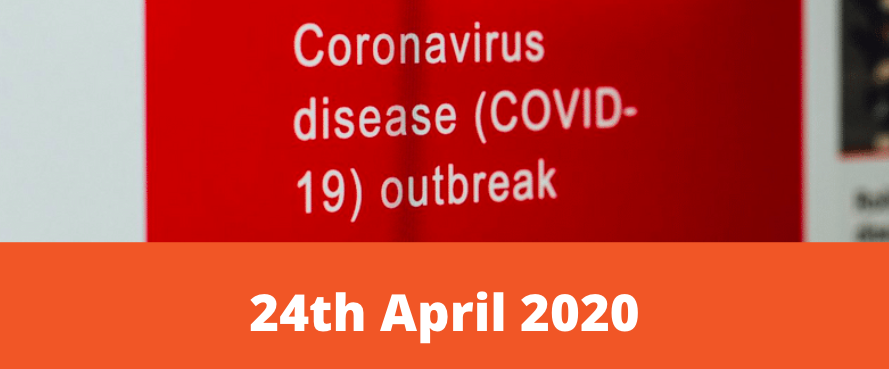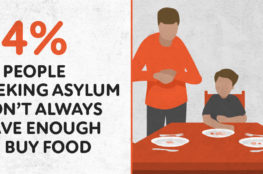Our weekly summary of ongoing advocacy initiatives, interesting surveys and research, government developments and useful resources. Contact us if you’d like to get this update directly into your inbox!
1. Ongoing advocacy initiatives
Home Office preparedness for Covid-19
The Home Affairs Select Committee this week took oral evidence from ILPA, Free Movement, Refugee Council, JCWI and Detention Action on preparedness in the immigration and asylum system, on the situation of people in detention and people with no recourse to public funds. The session can be watched here. The Home Secretary will appear before the Committee to answer questions on these and other matters on 29 April.
Written submissions to the inquiry have now been published online.
Access to healthcare
Following work by health advocates, 60 cross-party MPs wrote this week to Health Secretary Matt Hancock, calling for the immediate suspension of charging for migrants and associated data-sharing and immigration checks. The letter, coordinated by Apsana Begum MP, Bell Ribeiro-Addy MP and Zarah Sultana MP, cited the case of Elvis, a Philipino migrant who died from Covid-19 after fearing he would be charged for treatment. Robert Jenrick, Secretary of State for Housing Communities and Local Government was subsequently questioned on this and the Government’s enquiry on the effect of COVID-19 on BAME communities at the daily update of 18 April (here from 48.40).
The BMJ Paediatrics Open Journal reported findings from a survey completed by members of the Royal College of Paediatrics and Child Health. Results described that fear of charging and deportation, and confusion around entitlements, are leading to delays seeking care. The findings are here and related coverage here. Medact has produced graphics and videos to help disseminate key findings on social media.
Concerns raised about social distancing in asylum accommodation
Calls to suspend NRPF conditions
The Convention of Scottish Local Authorities (COSLA) have published a press release calling on the UK Government to lift all NRPF conditions and stating “The rules are undermining the response to COVID-19, adding to the complexity and pressure on services and leaving people highly vulnerable during the crisis”. COSLA have also published guidance for local authorities in Scotland on how to support people with NRPF conditions during COVID-19.
Holly Lynch MP, Shadow Immigration Minister, has written to the Government calling for suspension of NRPF status for migrants as a condition of their immigration status. Coverage of the letter is here . Elsewhere, in direct testimony ‘Victoria’ wrote powerfully on the need to suspend NRPF in its entirety and Coventry Asylum and Refugee Group (CARAG) made the case for an immigration amnesty.
Court of Appeal Ruling on Right to Rent
The Court of Appeal has confirmed that the government’s Right to Rent scheme causes racial discrimination. The Appeal Court upheld an earlier finding by the High Court that, as a result of right to rent checks, landlords were discriminating against people of migrant or ethnic minority backgrounds, but also found this discrimination was not sufficiently disproportionate as to create a violation of the European Convention on Human Rights. JCWI is preparing to appeal this judgement at the Supreme Court and further coverage of the ruling is here .
2. Ongoing surveys and research
The Institute for Community Research and Development at the University of Wolverhampton, ASIRT, Migrants’ Rights Network, Project 17 and Public Interest Law Centre are asking frontline organisations in England working with people with no recourse to public funds to complete a short survey on local authority responses to the pandemic, to be used to support advocacy. It should take no longer than 15 minutes. The link is here, deadline Wednesday 29th April.
Privacy International and Open Rights Group have created a joint survey which aims to better understand the capacity and needs of organisations in the migration and refugee sector to respond to the growing importance of technologies and data governance. The survey is here and will be open until 4 May 2020.
A group of academics across Europe coordinated by Ghent University are distributing a survey focused on asylum applicants, undocumented migrants and recently arrived newcomers, to better understand the impact of Covid-19 on their lives. Details of the Apart Together initiative are here and accompanying multilingual resources on the virus in European and other languages here.
The deadline on the ‘Patients Not Passports’ survey on migrants’ access to healthcare during coronavirus has now been extended to noon on Tuesday 28 April.
3. Home Office and Government Developments
To keep up to date with regular changes to the asylum system due to COVID-19, keep an eye on Refugee Council and Right to Remain webpages.
Newly granted refugees – asylum support continuation for people granted refugee status
The Refugee Council reported this week confirmation from the Home Office that newly granted refugees will be able to continue to receive asylum support payments until their first Universal Credit payment is received. This extension has been introduced because of the impact of COVID-19 and will apply until the end of June, when the Home Office will review the situation.
This comes after organisations asked for further clarity on move-on arrangements for newly granted refugees in the context of COVID-19. Communication with the Home Office now confirms that although newly granted refugees will still be expected to apply for Universal Credit, asylum support payments will continue until Universal Credit is received. To date, the Home Office has only confirmed this verbally in meetings with third sector and local authority stakeholders. Further written details are awaited from the Home Office, however this is extremely welcome news.
We are keen to better understand how this is operating in practice and how newly granted refugees are navigating this new system, so please do get in touch!
Additional Temporary Locations for the Registration of Asylum Claims
Extension of eligibility for free school meals
Enquiries re ARC cards
New package to support online learning
The Department for Education has announced that disadvantaged children across England are set to receive laptops and tablets as part of a push to make remote education accessible during the coronavirus outbreak. The groups mentioned are “children in the most vital stages of their education, those who receive support from a social worker and care leavers.” Further details are awaited on how the scheme will be implemented in practice. The announcement also gives details of online learning resources from the Oak National Academy and the BBC.
4. Resources
UNHCR’s Europe Bureau have published a paper covering Practical Recommendations and Good Practice to address Protection Concerns in the context of the COVID-19 pandemic. It includes guidance to and good practice from states in Europe on areas such as: ensuring access to territory whilst protecting public health; maintaining basic registration and documentation; preventing transmission and community engagement and risk education.
Migration Exchange have commissioned a review of the UK migration and refugee sector, including an analysis of the sector’s income, resource allocation, capacity, financial resilience, geographical spread, and focus of work. It is intended for a wide audience including foundations who are interested in supporting the sector as well as organisations working in this field, and can be accessed here.
Odils Learning Foundation in Plymouth have published videos in a wealth of languages on how to use Zoom from your mobile, how to open gmail accounts, and on how to follow social distancing and protect yourself from Coronavirus which can be found here.
50 humanitarian organisations, including the World Health Organisation (WHO) and the United Nations High Commissioner for Refugees (UNHCR) have produced a children’s storybook to help children aged 6-11 cope with coronavirus. The book is available online and as an audiobook and is available in 24 languages here.




